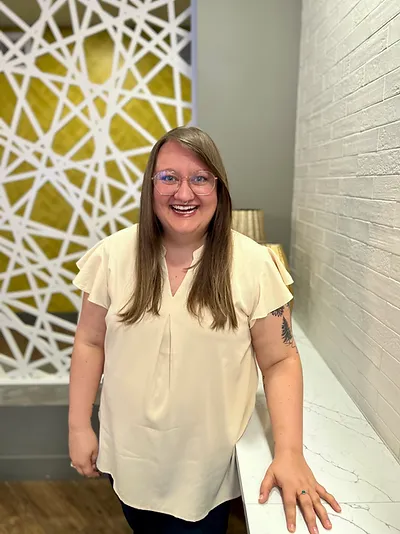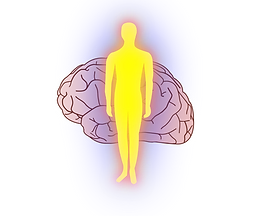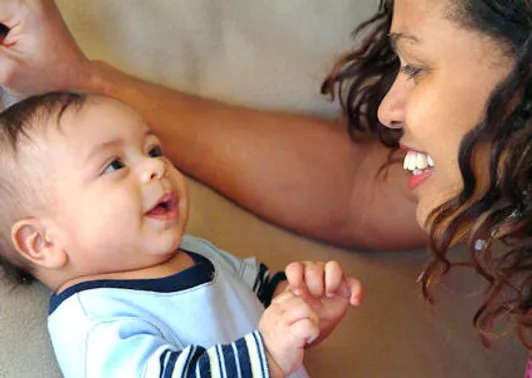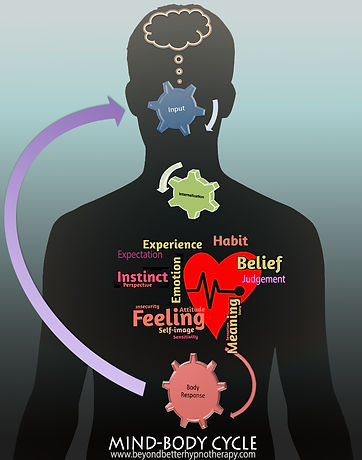Becoming More Human: Why Your Body Matters- Guest Writer, Heather Gargis, LPC, SEP
Hey Friends! Gina here. I'm so excited to launch my Collaboration Project for the rest of 2023! Each month, you will hear from a different voice in the mental health community. They speak on their specialties and experience, but with a twist or two. They will do this by sharing something personal, something professional and something practical, along with how they have seen therapy and faith integrate beautifully and how this combination is honoring to how we are wired; created for healing and growth. I'm thrilled to kick this project off with Heather Gargis, LPC, SEP.
I love how Heather helps us think more intentionally about our physical self, and how it relates to our emotional health and the manifestation of trauma, illness and the like. I also love the resources she shares at the end. This article will be one you'll want to save for future reference, and one you might want to pass on to your people!
Ok, enough from me- let's dive in!
The journey of becoming more human is a choice that every person has the power to make, but it can be difficult to do so because it requires us to attend to our physical bodies. Many of us prefer to live in our heads, accumulating more and more knowledge and keeping ourselves busy to avoid engaging with our physical body. Fortunately, mental health professionals are increasingly recognizing that the mind and body have a deep connection. Acknowledging this connection illuminates the importance of both spirituality and faith in understanding ourselves as well as our relationship with the world around us. By recognizing the mind-body connection, this shift in mental health circles gives us an opportunity to dive deeper into understanding ourselves, our physicality and experience in life, and how we are connected to our creator. This newfound awareness can help us to find balance between faith and therapy, allowing us to live a more meaningful and fulfilling life.
I am among those who have quite often struggled with embodying my humanity. I can easily find myself feeling “safer” with the “head knowledge” and busyness, avoiding the vessel I actually live in - my body. One of the best ways to describe an embodied state of living is understanding that the thoughts of the mind and the felt experience of the body are dynamically interdependent rather than separate entities.
Historically, the body has been dismissed, neglected and seen as untrustworthy vessels we temporarily exist in. If you have spent any time in classical or Judeo-Christian spaces, you likely have witnessed the continual degrading of the body, often stemming from the belief that the body is separate from and inferior to the mind. Today, this view runs deep within both Western culture and the church. This view exerts pervasive power over people by creating fear, doubt, and distrust of one’s self and what their body is telling them. Western Patriarchal values about the body are experienced through and measured by unattainable appearance standards, the devaluation of emotions and intuition, silencing how our bodies respond to threat, encouraging people to ignore any sensations that would cause conflict, and cultivating a culture of machines rather than human beings. In Christian culture, this can show up by enmeshing things like “the flesh is bad/sinful” and “don’t listen to your body/your body is bad.” This view happens through inaccurate preaching on the physical body, purity culture, mislabeling emotions and bodily sensations as sin, and shutting those down who are questioning Scripture.
I grew up in an abusive household until the age of 15 and was in some sort of chaotic distress until the age of 24 when I moved from Alabama to Virginia and eventually to Missouri. Since that time, I’ve made great friends, developed good boundaries with my family, finished a master’s degree, found my passion(s) (therapist, teacher, researcher), and worked hard on my mental health. However, there were times when I became so frustrated with myself because my mind and my body were disconnected. I knew the truth in my rational mind. Cognitively, I knew what Jesus says about me and believes about me, but my instinctual body was “stuck” in the past. I was scrambling to “figure out” (with my mind) how to get unstuck, and that led to further exhaustion and despair. I tried everything from working out at the gym to meditation to changing my diet to praying everyday to taking tons of supplements to breathing practices, etc. These are good things and helped release some of my stress, but because I avoided developing a relationship with my body, I was just managing rather than healing.
In Western culture, we live out of sync with the body’s innate wisdom and intelligence. We are conditioned to believe that busyness, stress, and pressure are just a part of daily living. Society demands that we push ourselves to the max, and those who don’t are often seen as lazy, pathetic, and unmotivated. The media continually blasts our brains with unattainable expectations and feeds on our insecurities, sometimes resulting in things like desperate purchases of the latest fad or a dive into depression and self-hatred.
However, as mental health professionals, scientists, and the general population are starting to realize that the body has significant importance. There is an increased understanding that the mind and body are relational and interactive systems dependent on each other.
Whenever I have expressed this relationship with mind and body whether that is during a class I’m lecturing, in sessions with my clients, or at dinner with friends, I receive two consistent types of responses... One: someone asks, “So what?” in a tone that sounds dismissive. And two: someone fearfully asks, “What will happen if I explore building a relationship with my body?”
Healing through embodiment: Why is connection with my body important?
“Embodiment is the practice of attending to your sensations. Awareness of your body serves as a guiding compass to help you feel more in charge of the course of your life. Somatic awareness provides a foundation for empathy, helps you make healthy decisions, and gives important feedback about your relationships with others. Embodiment in somatic psychology applies mindfulness and movement practices to awaken body awareness as a tool for healing.” -Dr. Arielle Schwartz\
When we are born, our very first language is through our body - through sensations. Our body gives us cues and signals for us to survive and thrive in the world. We don’t start “explaining” our needs until several years later. Once we start using words, we are “taught out of” our somatic needs (listening to the body) which then leads to this separation of mind and body.
Often, I hear parents say “use your words” to their small child. Of course, they want to figure out what their children need so they can help meet those needs. But something that will be more impactful in the long run, is for parents to learn what their children’s bodies are communicating and help their children learn to listen to their bodies. It is a lot of pressure for children to be able to name their needs when they are still learning what their bodies are even communicating to them. This can easily move a child into frustration or shut down which then becomes cyclical. I am not saying that words shouldn’t be involved, but living in the sensation language of the body is a more embodied way of communicating and being.
Somatic psychology (the study of the relationship and interactions between the mind and body) and neuroscience invite us to understand embodiment through the lens of our nervous systems. Embodiment comes from three different sensory channels within the nervous system. These sensory channels are:
Sensing the environment around us
Sensing the physical presence/position of the body
Sensing what is happening inside our body
Ann Saffi Biasetti explains embodiment to simply be “living life informed through the sense experience of the body.”
Embodiment is one of the most beautiful things Jesus ever did for us. God loves our whole being so much that Jesus entered into a human body in order to truly be with us in physical form. He experienced human emotions to intimately know our hearts. He took on a human mind to deeply encounter our thoughts. He desired to be impacted in the same ways humans are, so he can profoundly and fully discern the human experience.
We are fearfully and wonderfully made. The care and attention by which God has made us is incredibly purposeful (Psalm 139). Our bodies are made in the image of God. Jesus was openly and fully human to everyone who followed him, listened to him, touched him, and shared life with him. He grew up just like any human. He experienced being tired, hungry and thirsty. His physical body was weakened and suffered. He explored his emotions as he interacted with people. He used the environment around him, as well as his human body, to heal others (he mixed saliva with dirt and he touched them with his hands). He died and was resurrected in a real physical human body. God made us embodied beings and delights in our human form.
Relationship between Mind and Body: How do you do it?
What did you notice in your body as you’ve read this article? Are there parts of your body that are tense or settled? Are your mind and body on the same or different pages? Do you find it difficult to sense and feel your body?
It truly takes courage to listen to your body and develop a relationship with it. Whether or not you believe that the body is significant or wise, your body bears the burden of your life experiences.
We have all had some sort of experience like mine where our minds and bodies are radically disconnected. Every person in the world is carrying around wounds that are beyond their ability to think their way through. We work really hard to figure a way out, talk our way out, analyze and strategize about how to get out of the uncomfortable. We try to use our minds to solve what is happening in our bodies, and usually end up being highly critical and nasty toward ourselves.
Two modalities drastically changed my understanding of my body and had tremendous impact on my life:
Peter Levine’s modality (Somatic Experiencing - a body-centered approach that addresses physiological dysregulation resulting from trauma); and Aline LaPierre’s modality (Neuroaffective Touch - a gentle approach that uses intentional touch to bring unconscious memories that are stored in the body into conscious awareness which rewires trauma responses in order to heal). They gave me the roadmap to what it really means to listen to my body rather than trying to control my body. There is this beautiful process of carefully listening and tracking the body to help guide it to a more regulated state of being. The exploration that takes place is through movement, sensations, emotions, senses, images, touch, and words. By tracking the body through each of these spaces, we give the body the opportunity to speak and find a new sense of safety, power, love, and belonging. Having head knowledge and explicitly processing is only 20 percent of our daily functioning. The other 80 percent comes from our implicit self - our body. This means that if we are trying to think our way out of our experiences, we are only working with 20 percent of self (mind) and are missing the 80 percent of self (body).
This process takes time, needs to be slow, and starts with deep compassion and safety. Everything will not feel great, nor will it change quickly, the second you decide to pay attention to your body and what it is telling you. Moving into a relationship with your body will not feel like a breath of fresh air in the beginning. Your body will want to tell you how it’s feeling - physiologically and emotionally. There will be times where it does not feel good to be in your body which is why it is important to learn how much it can tolerate and to listen to your body when it cannot go any deeper. Dealing with physiological dysregulation which is intolerable discomfort in the body and unmanageable emotional states, is a separate process from dealing with what causes dysregulation. Most of us have been taught to deal with the cause and to quickly move on from the physiology dysregulation. Once again, this is dismissing how our bodies are impacted and then our bodies hold onto anything that it perceives as a threat.
Unlocking your Full Potential: Why do it?
As you get to know your mind and body, you will begin to understand the profundity of your nervous system - how your biology, chemistry, and thoughts impact every part of your daily functioning - mood, digestive-tract, sleep, hunger cues, hormones, muscles, emotions, etc. This is a process that moves you into wholeness. It helps you create trustworthy boundaries, authentic communication with self, and ultimately calls you home to your most intimate and beautiful place to live - your body.
By cultivating a mind-body relationship, you unlock your full human potential. By slowing down the mind and diving deep into the body, you give yourself access to greater intelligence and discover what the mind and body need to do to regulate the nervous system, emotions, and sensations in the body. This builds long-lasting trust within your entire system of self which leads to a more consistent and compassionate way of living - not just with yourself, but also with other people and your environment.
This is how Jesus lived in the world. This is the power in cultivating the mind-body relationship. This is what it’s like to become more human. This is embodiment.
RESOURCES:
If you are interested in developing a relationship with your body but are not sure where to start, I encourage you to check out the options below.
1. Call of the Wild: How We Heal Trauma, Awaken Our Own Power, and Use It For Good
Here’s why I love and recommend this book
While not steeped in Christianity, Kimberly Johnson does a phenomenal job at what it means to understand our nervous systems and learn to trust our body. She gives clear insight into difficult concepts like attachment, trauma, and boundaries and how our bodies are impacted by them. She gives practical tools to help us repair, heal our relationship with our body, and what it really means to be human. This book primarily focuses on women but will impact anyone who reads it.
2. Waking the Tiger: Healing Trauma By: Peter Levine
Here’s why I love and recommend this book
Peter Levine, the founder of Somatic Experiencing, states “In order to stay healthy, our nervous systems and psyches need to face challenges and to succeed in meeting those challenges. When this need is not met, or when we are challenged and cannot triumph, we end up lacking vitality and are unable to fully engage in life. Those of us who have been defeated by war, abuse, accidents, and other traumatic events suffer far more severe consequences.” This gentle and highly effective way to treat trauma gives hope to those who have suffered. Peter's exceptional understanding of the body offers us deep insight into what it means to deeply heal and flourish.
3. Burnout: The Secret to Unlocking the Stress Cycle by: Emily and Amelia Nagoski
Here’s why I love and recommend this book
The Nagoski sisters are absolutely incredible as they dive into how women experience burnout and struggle to complete the stress response cycle. They empower women to explore what it means to be human, how to heal from Human Giver Syndrome, how the patriarchy blinds women from their power, and just how important it is to be in relationship with our bodies. They explore the beautiful unlimited power of rest and connecting deeper to the nervous system which leads us to completing the stress cycle. Emily and Amelia’s practical and solid understanding of the nervous system provides us what it means to bravely build a relationship with our bodies and heal from within.
Find a Somatic Experiencing and/or Neuroaffective Touch Practitioner
Somatic Experiencing (https://directory.traumahealing.org/)
Neuroaffective Touch (https://neuroaffectivetouch.com/find-a-practitioner/?doing_wp_cron=1678641254.3536419868469238281250)
Heather Gargis MA, LPC, SEP is a licensed professional counselor at Oasis: Healing for Body and Mind in St. Louis, Missouri. She is a somatic trauma therapist, lecturer, and researcher. She is certified in Somatic Experiencing, EMDR trained, and is currently working to complete her certification in NeuroAffective Touch. She is dedicated to providing a holistic mind-body approach to therapy through the lens of somatics to find life long healing. Heather has extensive experience working with complex trauma, childhood abuse and neglect, attachment wounds, dissociation, chronic pain/syndromes and sexual abuse.
Originally from Alabama, Heather moved to St. Louis after she finished a two-year ministry internship with Reformed University Fellowship at Virginia Tech. She completed her Masters of Arts in Counseling from Covenant Theological Seminary in 2019 and has been in the counseling field ever since.
When Heather isn’t in the counseling room, you can find her in the company of her good friends, attending yoga, working on her latest research, or playing her banjolele. If you would like to read more about Heather Gargis, you can visit her at https://oasisstlouis.com/heather_gargis/ or shoot her an email at heathergargis.oasis@gmail.com .







